Climate change is a topic front and center not only in political debates, but in everyday conversation. With all the differing views on not only the causes of the Earth’s temperature shifts, but the ways in which its inhabitants can fight back against the climate crisis, it can be difficult to wrap your head around the issue. If you’re looking to get informed and jump into the discussion, we’ve got some great books to get you started!
From the changes our planet is already experiencing to the wild and creative ways people are trying to combat global warming, these books have it all. Here are 11 of the most informative climate change books.
Related: Inspiring Nonfiction Books About Nature and Animals
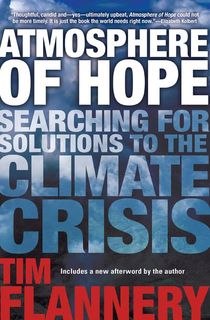
Atmosphere of Hope
Author Tim Flannery paved the way in the literary conversation on climate change with his book The Weather Makers, and followed that insight up with Now or Never. Now in Atmosphere of Hope, published in 2015, Flannery utilizes the most recent scientific research to create a picture of the state of the Earth’s climate crisis.
He takes the discussion a step further, proposing a tactic for getting our planet back on track with clean energies and soft geoengineering. With Flannery’s approachable and inclusive style, this is a great place to start for anyone looking to be a part of the conversation on the future of climate change.
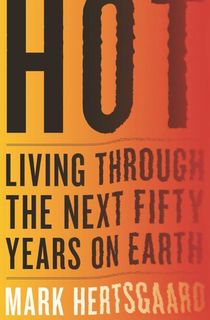
Hot
Journalist Mark Hertsgaard transcends the politics of climate change in his book Hot, tackling the practical methods people can use to navigate the changing world. With research from all around the globe, Hertsgaard details the incredible ways people have already begun to evolve their way of life—from flood contingency plans in urban North America to the clever ways impoverished farmers in Africa have already learned to improve their yields.
Though he writes from an optimistic and encouraging viewpoint, Hertsgaard makes it clear that the urgency of climate change is not one that can go ignored.
Related: Summer School: 11 Fascinating Nonfiction Books for Teens
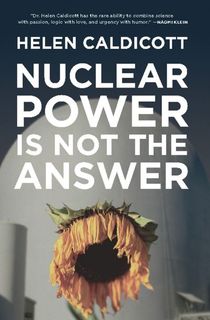
Nuclear Power Is Not the Answer
Many environmentalists are proponents of nuclear power as a solution to the global warming crisis. However, in this book, antinuclear activist Helen Caldicott refutes the claims that nuclear power is a harmless and consequence free band-aid for the climate change problem.
Caldicott dives into the hidden financial costs, the impractical sustainability, the environmental cons, and the potential for large-scale accidental or terroristic devastation. Not leaving her readers without hope, Caldicott proposes her own ideas for what she considers realistic and green sustainable energy sources.
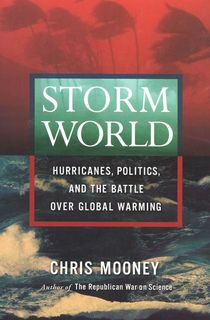
Storm World
Within meteorology, one hot-button topic of dispute is whether or not the growing intensity and violence of hurricanes is due to the effects of climate change. In Storm World, science journalist Chris Mooney takes a look at the debate from both sides.
While Mooney tries to get to the bottom of the intensified natural disasters, he also takes a look at how media and politics have turned the scientific debate into its own storm of chaos.
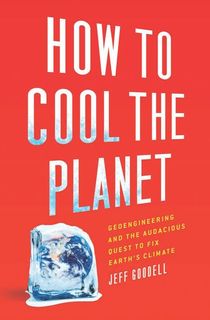
How to Cool the Planet
When people think about scientists racing to combat global warming, most minds go to creating new sources of energy and reducing pollution. However, some scientists aren’t targeting the cause of climate change, but rather the effects.
In How to Cool the Planet author Jeff Goodell explores geoengineering—the quest to lower the Earth’s temperature. Read about the wild and unimaginable technologies trying to save the planet, like a machine that filters CO2 from the air, and a device that deflects sunlight away from Earth.
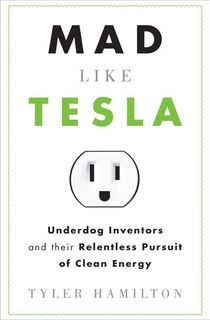
Mad Like Tesla
Latching on to the fact that, over a century ago, Nikola Tesla was considered a lunatic for predicting global warming, this book celebrates the wild ideas of scientists today who believe they can contribute to the reduction of the global climate crisis.
From a retired refinery engineer who believes he’s capable of harnessing the energy of man-made tornadoes, to a professor and a businessman with a company which genetically modifies algae to naturally secrete ethanol, Mad Like Tesla tells these stories through first-person interviews. Beyond the scientific ideas, the book also touches on the obstacles which prevent environmental scientists from achieving their full potential.
Related: The Best Science Books to Help You Understand the World
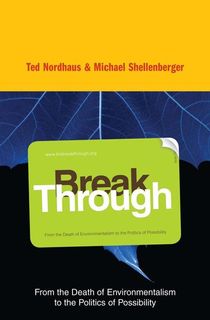
Break Through
After the essay “The Death of Environmentalism” sparked incendiary debate over the failings of the present model of environmentalism, authors Michael Shellenberger and Ted Nordhous penned this book as a well-articulated follow-up manifesto for change.
Shellenberger and Nordhous propose a new environmental agenda which updates itself to align with the values of modern day America, rather than remaining stuck in its victories of the 1960s. Their bold environmental designs have garnered support from such political leaders as Hillary Clinton and Barack Obama.
Related: The Nature of Environmentalist Author Jean Craighead George

This Changes Everything
This book by Naomi Klein challenges the status quo, claiming that the current climate change crisis calls for a complete overhaul of our entire way of life. The first step in getting our planet back, Klein posits, is to restructure both our economy and our democracy.
Her belief that capitalism stands in the way of global regenerations frames this point in time not as a harrowing undertaking of monumental change, but as a gift to lessen the inequalities amongst mankind as we reshape the world together.

Six Degrees
The title of Mark Lynas’s enlightening book alludes to the very real possibility that within the next century, Earth’s average temperature may increase by six degrees. The book dives into the dire ways in which the world might change in the next couple of decades—from the environmental factors to the political response to such crises.
However, Lynas also offers a sense of hope, for if people take action and strategize to change with the climate, society can both halt the effects of global warming and adjust to the damage already done.
Related: 12 Nature Book That’ll Help You See the Beauty in Every Day
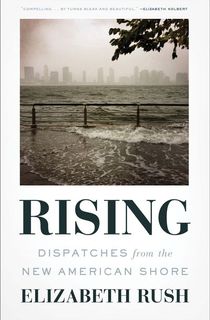
Rising
In the moving and eloquent Pulitzer Prize finalist book Rising, Elizabeth Rush addresses one very real consequence of climate change: rising sea levels. This book takes readers across the United States, to coastlines which are being forever changed by wicked hurricanes and merciless flooding.
From a woman in Staten Island whose father was lost to Hurricane Sandy, to the Native American community living on Isle de Jean Charles as it slowly loses ground to the encroaching sea, Rush gives voice to those who are often ignored in the conversation on climate change.
Related: 5 Ocean Books to Take You Underwater
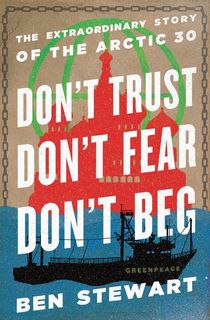
Don't Trust, Don't Fear, Don't Beg
This book is less about the science of climate change—instead, it's "a gripping story of tremendous courage that reads like a thriller” (Naomi Klein). Following the "Arctic 30," a group of Greenpeace activists who were imprisoned after protesting Russian drilling in the Arctic. Journalist Ben Stewart led the campaign to have them released from their 15-year sentence in Russian prison, and details their experiences in this gripping nonfiction book.
“With its colorful dialogue, moral dilemmas, and scenes of physical danger, Stewart’s book would make a great movie . . . the prison life the book reveals is eye-opening, and Stewart describes it with great verve.” —Foreign Affairs
Keep Reading: How Barbara Kingsolver's Books Warned Us of Climate Change
Featured photo: Ben White / Unsplash


